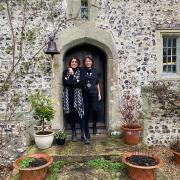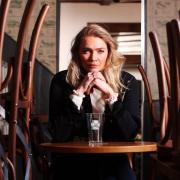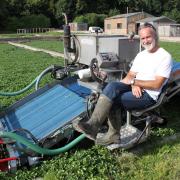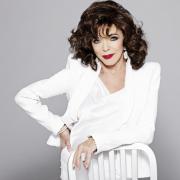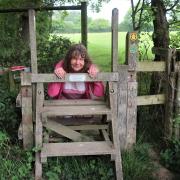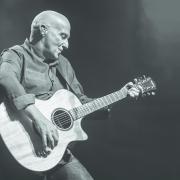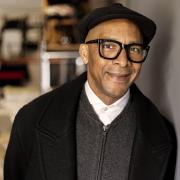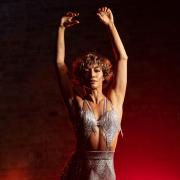He's a mesmerising stage actor and brilliant playwright, perhaps best known for playing monstrous villains in a string of blockbuster movies. But as Steven Berkoff's latest memoir reveals, beneath the fearsome facade lies a vulnerable boy
Interviews with Steven Berkoff almost always begin the same way – usually with the interviewer expressing abject terror at the prospect of meeting him. Or as one writer put it: “Am I frightened of meeting Steven Berkoff? Well, put it this way, I wake up in a terrible, gibbering, teeth-chattering sweat...” Lazy journalism perhaps, but it’s almost impossible not to take this line. Berkoff invites it. He called one journalist who gave his autobiography a bad review a “dessicated hack”. And then there’s his legendary interview technique, which, apparently, is to keep eye contact to a minimum and dispense with small talk altogether. But perhaps Berkoff was merely paying a part like any other, serving up what was expected of him. And though it’s plausible he once courted his malevolent reputation, I suspect that, at 73, the novelty has worn a little thin.But it would be doing Berkoff a disservice – both to his talents as a writer and performer – to categorise him as a one-dimensional panto villain. Besides, the truth is so much more interesting and you don’t have to search far to find it. The answers lie in his recent memoir of his early life in the East End, entitled with characteristic frankness, Diary of a Juvenile Delinquent. The cover depicts a handsome young man looking out at the world with a disdainful sneer. But though he looks poised to conquer the world, the young Berkoff had few early advantages, and rejection and disappointment ran like leitmotifs throughout his early life. He even hated his name. Steven Berkoff was a later invention. He was born plain old Leslie Berks, a derivation of Berkovitch – a name his father had abbreviated to assimilate in the adopted country of his Russian forbears. Loathing Leslie, Berkoff instead adopted his middle name, Steven, then added an ‘off’ to his crudely shortened surname to preserve the ethnic ring.He was born in 1937, in the Jewish East End, to a doting mother, Polly, and a largely absent father, Albert. His father was a tailor who made zoot suits for West Indians; he was also a womaniser and gambler. His shop was beneath a betting establishment, so much of his hard-earned profit was frittered away over the nags, dogs, and anything else – from poker to bridge.But even when he wasn’t in the betting shop, Albert had little time for his son. “I don’t think he had the inclination, though it may have been that he was having a relationship with another woman, and that made him feel guilty,” says Berkoff. “He acted as if he was an indifferent stepfather and I was just a useless burden he happened to be stuck with. He never ceased to moan about how hard he worked to keep a parasite like me.”And then came the ultimate betrayal. One day his father promised him a bike, on condition he remained on his best behaviour for 40 days. “I’m sure he was unaware of the biblical resonance of that number – Christ’s 40-day fast in the desert – but as far as I was concerned, this was a pact made in blood.”Finding the deal irresistible, the young boy determined to be on his best behaviour – never arguing, eating whatever was put in front of him and going to bed when he was told. It was the longest 40 days of his life, but through the mist he could see the bike at the end of it. Then, lo and behold... no bike. Berkoff never forgot the deceit.He was continually being uprooted. During the war, he was evacuated to Luton, then spent a year in America, before returning to Luton and subsequently back to the East End. “I never had a chance to make allies and became an introverted kid.” He sought solace in the local library, but his desire to learn was knocked out of him at school, where he was beaten and unfairly relegated to the bottom of the class. “I was a happy, enthusiastic child, full of games and interests, but that got dampened by the awful society that existed then – a post-war brutish world. All the curiosity I had, the passion for language and art, just faded. And so I bumbled along, half alive.”One day he stole an expensive bike and was sentenced to three months in a remand centre, where he was temporarily placed in solitary confinement. “It was a lonely time and I took refuge in fantasy and writing stories; it was a means of expressing the most vital part of myself.”The acting was born out of a need for allies. “People from broken families, people without love in their life, are always looking for a group to join. I was heading for the garbage heap, but acting saved me.”After studying drama and mime in London and Paris, he joined a series of repertory companies before forming the London Theatre Company in 1968, a radical drama group which gave him a vehicle for his own plays and adaptations. His early works – East, West and Greek – remain among the most remarkable in post-war British theatre. But he’s the odd one out in the theatre world – always has been. “In the industry, they’ve always marginalised me, but my plays are published and studied all over the world,” he says.He is scornful about most modern theatre and when once asked which contemporary plays would still be of interest in 200 years’ time, he said he couldn’t think of any apart from his own. “In Britain, they keep doing the same old plays, in the same old ways, in the same old dirty costumes. But as the odd man out, I don’t have to deal with these people or their values or their art. I can do it myself now.”But beneath the defiance I detect resentment about his place in the firmament. He tells me he has often been snubbed by the meritocracy, who have refused him venues to stage his unorthodox plays. And he mentions a well-known actor, who failed to mention him in his recently published reminiscences. The ostracism must surely take him right back to his childhood experiences. “I take rejection with a little less tolerance than others. I regard it as somehow unfair – or an assault.”And he is full of paradoxes. Despite expressing an indifference to plaudits and recognition, when those two grand old knights of the theatre, Sir Ian McKellen and Sir Patrick Stewart, dropped in to the West End to see his adaptation of On the Waterfront last year, he was charmed and gratified. “All the best people came... People I never dreamt would cross the road.” But for all his theatrical ambitions, he remains best known for his villainous film roles – notably, Octopussy, Beverly Hills Cop and Rambo: First Blood Part II. Does this depress him? “Delighted. Absolutely delighted. It means you’ve made a stamp. Some of the greatest villains have been some of the best actors. Humphrey Bogart and James Cagney... they nearly always played villains, and harnessed a certain boldness and dynamism.” He plays another nasty piece of work in his latest film The Tourist, now on general release and starring Johnny Depp and Angelina Jolie. He found them charming and professional, though warmed to Depp most. “He’s a bit of a joker and very affectionate.” When not working, he likes to amble down to his weekend retreat, a Regency flat on the seafront in Kemp Town. He first visited Brighton as a boy when his father booked the family into a cheap and cheerful B&B. Berkoff was “gobsmacked” at his first glimpse of the sea and played ‘housy-housy’ on Brighton Pier and took the miniature Volk’s Railway to the Black Rock swimming pool. It left an indelible mark. “It has always been the most wonderful escape. Brighton has kept its charm, naughtiness, eloquence and antiquity above and beyond any other British town. Every time I go back I have this wonderful sense of nostalgia and delight in the fact it has changed so little.” But he was saddened by the local authority’s decision to tear down his beloved Black Rock swimming pool. “It was a wonderful place for people who couldn’t swim in the sea; now it’s a waste land. They should redevelop it.”He doesn’t visit quite as often as he did, blaming the pressures of work. And perhaps, now that he is putting his ghosts to bed, one by one, he no longer needs a refuge. He even made peace with his father at the end. “As he got older, his allies diminished and he needed me. That inspired me a bit and warmed my heart because I love to be needed. If somebody asks me to do something, I leap to it.”Writing the book has been hugely cathartic. “It was a form of therapy. If you write as honestly as you can, you unravel things that have been clogged up in the system and purge it out of yourself. I tried to be brave and confessed things that I would have been ashamed to tell anybody years ago. Now I just let it out. I think we’re all capable of these things.”Diary of a Juvenile Delinquent: A Memoir by Steven Berkoff is published by JR Books at �18.99.
MY FAVOURITE SUSSEXRestaurant: I don’t have one. I prefer to eat in because my wife [the pianist Clara Fischer] is a phenomenal chef. But I like English’s seafood and restaurant bar in East Street, Brighton, and sit in the corner, as Laurence Olivier used to do.
Shop: I love walking around North Laine, particularly the Bond Street area, picking up secondhand things. One of my favourite occupations is sitting outside Komedia with a sandwich and a cappuccino.
View: The Seven Sisters. I enjoy the walk and the rolling cliffs, which look like chalky waves.
Place to visit: Brighton Museum and Art Gallery has always fascinated me. I particularly like the art nouveau section and sitting upstairs in that fabulous tea room.



